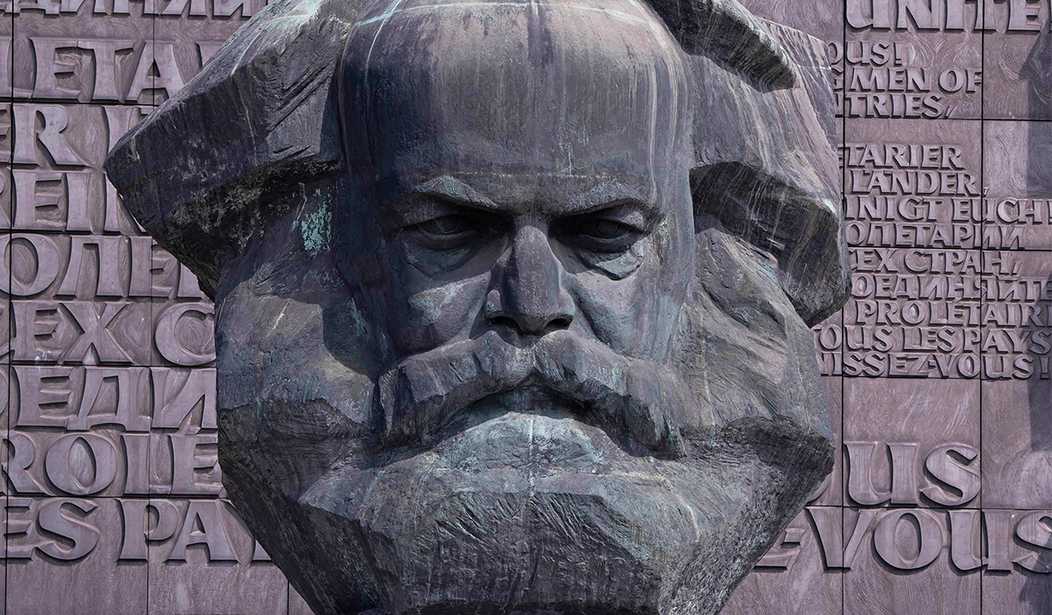When, and Why, Did the American Moral 'Collapse' Begin?
When, and Why, Did the American Moral 'Collapse' Begin?
We live in a pleasure-oriented (not duty bound) society now where we tend to want everything “fast and furious.” We haven’t been taught the patience of time. Instant coffee and tea, fast food, fast cars, get-rich-quick schemes, one-night stands, instant gratification—such things are the rule, not the exception, in today’s age, especially in Western civilization. It is what it is and it isn’t going to change soon.
But history doesn’t work that way. Historical trends move slowly, methodically, ponderously because it does take a while to change the direction of the masses. If brainwashed long enough, man will eventually come to believe anything. But “long enough” is the key. It generally takes awhile. Oh, history can spurt occasionally—we call it a “revolution”—but even revolutions usually take time, often generations, to ripen and mature. Humans now are in a hurry; history isn’t, and is rushed usually only with catastrophic consequences.
Regarding humanity’s current “fast and furious” nature, it wasn’t always this way. Indeed, historically, it is relatively recent, only gradually evolving in the last 250 years or so, i.e., since the beginning of the Industrial Revolution. For most of human history, things just didn’t change very much. Oh, there were some minor improvements here and there, but nothing like we’ve seen the past 200+ years. All over the world, people lived mostly by agriculture or hunting and gathering; trade and commerce existed, of course, but were definitely limited compared to our modern age. Because most people lived by agriculture, slavery was common—and accepted—nearly world-wide. Huge numbers of people were required to work the fields, and because capitalism, with its wage-creating system, was infantile at best, slavery was the only option. Now, please—there are exceptions to all of this, of course; few absolutes exist in history. But, by and large, this was mankind’s lot.
“Stasis” could be said to be the operative word. Things didn’t change much because, well, God doesn’t change. Every human society believed in some kind of deity, and since deity doesn’t change, no one expected society to change, either. So, for thousands of years there wasn’t too much “change” anywhere on earth.
But the Industrial Revolution altered all of that. It is easily the most significant “revolution” in history. Mankind discovered that things could, and did, change, sometimes rapidly, and sometimes with enormous benefits. Maybe “stasis” didn’t explain everything after all! So, in the 19th century, thinkers began to cast about for explanations for this “change.” God could explain “stasis,” but could He explain “change” as well? Was there another possibility? Hegel produced his “dialectic,” Comte opined about “positivism,” Spencer about a general, universal, non-absolute “evolution.” But it was Charles Darwin who revolutionized science and mankind’s thinking. This was incredibly significant because the Industrial Revolution was largely based on science, cause and effect, and understanding nature.
Under Darwin, science and truth didn’t change, only man’s interpretation of it. Truth was the same under Darwin as it was under Newton. But Darwin was able to convince most “intellectuals” that everything got here by naturalistic, materialistic processes—no God was needed. “God is unnecessary,” Julian Huxley later wrote. This idea—no God—has had enormous repercussions in the last century and a half, nearly all of them very negative. For, as Sartre said, “if there is no God, then everything is permitted.”
Regardless of the scientific accuracy of “Darwinism” (read Jonathan Wells’ book, “Icons of Evolution” for an understandable survey), it is in the moral realm where evolutionary theory has had its most devastating effects. Marx wanted to dedicate one of his books to Darwin because he thought Darwin’s ideas provided the “scientific” foundation for “scientific socialism.” Communist societies everywhere—the Soviet Union, Communist China, North Korea, et al—which are primarily based on Marx’s theory, have been the offspring. When Marx said, “Communism begins where atheism begins,” Darwin underlay that. Darwin “proved” how everything got here without God.
The Left has swallowed that ham whole hog and built their entire ideology on it. Even Hitler based his theory on Darwin (read “Mein Kampf” if you don’t’ believe that.) Darwin and Marx have, easily, been the two most influential people in the world in the last 200 years—trying to explain the “change” brought about by the Industrial Revolution. Science, of course, is necessary and indeed can be wonderful; but science without morality (God) can be deadly (Covid, anyone?). “If there is no God, then everything is permitted.” Hitler, Stalin, Mao, etc. would certainly agree with that. As would the hundreds of millions who were tortured and butchered because of them.
But, again, history can move slowly. Americans, for most of their history, believed in Judeo-Christian morality as an absolute. That began to modify in the 1960s. There was a reaction by youth to 1950s materialism, the Vietnam War, a much-needed Civil Rights movement that the Left eventually hijacked to increase its power, generations of atheistic, Darwinian “science” taught in schools—it all began to come together in the 1960s. And it hasn’t even begun to turn around yet. There is no indication it will any time soon.
So, now, 2023, we don’t even know what a man or a woman are anymore. Marriage is no longer what it was all through history. God-given human life, in and out of the womb, is utterly inconsequential. Because there is no God, there is no heaven to be gained, no hell to be avoided, this life is it, get all the gusto you can now because you only go around once. That is America, 2023. No responsibility, no duty, no consequences—get it NOW! Fast. Pleasure. There is no God watching you. Darwin said so.
This took awhile to hit America because history is a behemoth that moves slowly. But it hit us. We are in the middle of it. And history won’t get us out of it quickly, either.
Maybe a revolution...
When, and Why, Did the American Moral 'Collapse' Begin? (townhall.com)







Post a Comment